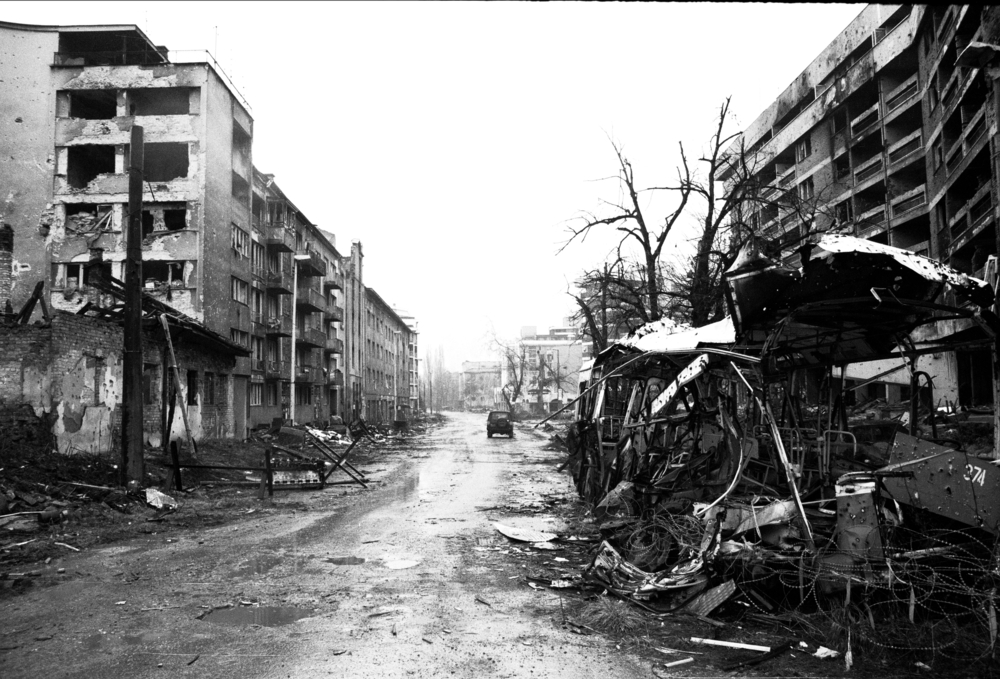Burnt out houses littered the Sarajevo skyline in 1992. The Bosnian capital was encircled by Serbian forces and had been cut off from the remaining Bosnian forces. The city was shelled from morning until night by the Serbian military in the surrounding hills. Water, food and power were scarce. Nowhere was the situation worse than in “Sniper Alley”.
The name assigned to Zmaja od Bosne Street and Meša Selimović Boulevard, Sniper Alley connected the Serbian stronghold of Ilidza and the UN headquarters within the Bosnian-controlled city. The whole stretch of road only covered three miles, but few ventured onto the street without a UN military convoy to offer some form of protection.
Amongst the carnage and destruction of Sniper Alley stood the Holiday Inn Hotel. A bastion of stability in a whirlwind of chaos, the hotel maintained a pretext of normality. Beds were changed each morning and food was cooked for the guests, mainly foreign journalists covering the war, on an open fire in the kitchen. The hotel seldom had electricity or hot water, but the staff continued to serve drinks in bow ties and neatly pressed suits in a bizarre show of Bosnian defiance.
For most journalists, leaving the Holiday Inn and heading straight out onto Sniper Alley took days of preparation. Jeeps were adorned with British and American flags in the vague hope that the striking banners would deter the sniper’s bullets. The war correspondents would speed out in their cars and dart across the road, with their bulletproof jackets pulled up to their neck and their helmets tightly fastened. But not Paul Marchand.
The eccentric and flamboyant Frenchman preferred to drive around the city in a beat-up old Alfa Romeo with the doors sealed shut, a cigar in his mouth and sign in the back-window reading “Don’t Shoot” “I am immortal”. On his bonnet, he had emblazoned “for those about to die, we salute you!”
Marchand bucked the trend of foreign journalists at the Holiday Inn. Rather than scurry around the city in jeans, Timberland boots and bulletproof vests, he strutted dandily amidst sniper fire and exploding mortars in an ironed white shirt, black trousers and well-polished dress shoes. He refused to wear a flak jacket because he couldn’t find one which matched his clothes.
Marchand was a radio correspondent for French-language radio and for him, war was a drug. After spending twelve years in Beirut, he was drawn to the horrors of war and came to Sarajevo to get his fix in 1992. “In a country at war, people lose the straightjacket imposed by education and convenience, and become truly natural, very instinctive,” he wrote. For him, those instincts meant tearing around the war zone with very little protection as far away from normality and boredom as one could get. On one occasion, he abseiled down the atrium of the Holiday Inn Hotel and in 1993 he managed to persuade the conductor of the Sarajevo Philharmonic Orchestra to conduct their concert in the hotel whilst suspended from the roof.
“In Beirut, as in Sarajevo, every morning, I was making my way towards death in my journey of destruction”. In a city of tortured humans, Marchand was one of them. He had little regard for the flak jackets and helmets as he believed it was a way that journalists detached themselves from the reality of the situation. His Raoul Duke-style, gonzo journalism was, to him, the real craft of journalism. Journalistic neutrality was not his way, he believed the journalist holds the right to deliver compassion and sympathy but also to condemn and judge.
In October 1993 he was shot in the right arm by sniper fire and was forced to return to France. He was able to teach himself to write with his left hand and began writing novels. But for someone like Marchand, the mundaneness of everyday life was too overbearing, and he eventually took his own life.
He was part of a dying breed of rock and roll journalism, which is slowly being reduced to the annals of the 90s. Hunter S. Thompson, Paul Marchand, Tom Wolfe and Lester Bangs left their mark. A lack of objectivity was the nature of their game. Men of taste, who loved the craft of journalism and everything it entailed.


